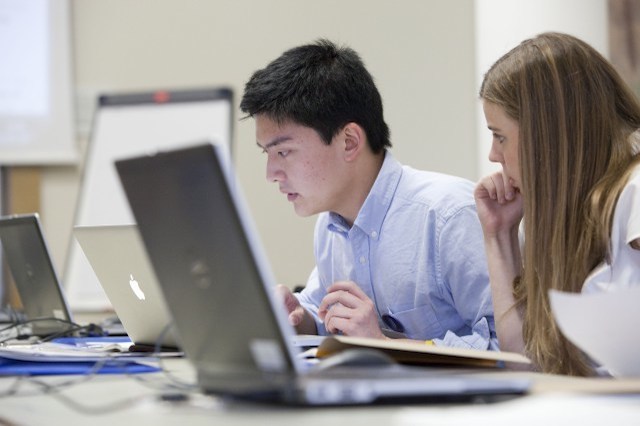We were commissioned by Mace to design a deep-immersion role-play exercise that would give their first year graduate intake a view an intense accelerated experience of the entire construction life-cycle of a project.
Think Up are specialists in deep-immersion role-play, one of the main techniques that we use to create experience-led learning. We pay special attention to putting in place the right contextual stimuli – from briefing material to how the training space is configured – to make the activities at hand feel as real as possible. Once the stage is set for the role-play, the art is in the facilitation, tuning tasks and the release of information to maintain a high level of participant engagement.
Participants in the Mace Life-cycle Team Challenge take on the role of a multidisciplinary team of engineers, construction managers and project managers whose job is it to see a project from commission through to construction to client handover. We worked with subject matter experts from Mace to create realistic team briefing documents based on a real construction project. We then briefed senior members of staff on the roles that they would take on to support the activity. For instance, one member of staff took on the role of the client’s representative for the project; another the role of technical director for each of the student teams, offering them advice on the tasks they were being given.
An important element of the Mace Life-cycle Team Challenge is the self-led learning that takes place between the workshops. Several weeks ahead of a given session, participants are told what the learning objectives for that workshop will be, and are tasked with finding out as much as they can about the subjectmatter from colleagues and precedents within the company, so that they arrive at the workshop with a foundation of knowledge that can be put to the test and built upon.
Another important element of the programme is reflective learning. At each stage of the project teams are expected to submit a reflective team learning diary. In it they are asked to write about what challenges they faced in the workshops, what measures they would put in place to overcome those challenges, and, in subsequent entries, whether those measures were indeed successful. Reflective learning like this is intended to encourage participants to think about the learning process itself so that they can be more active agents in their own development, better equipped in future to seek out their own learning opportunities.
